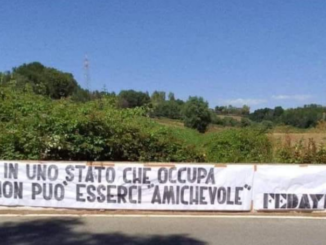
Gaza has around 150 houses of archaeological significance. Many of these suffer from neglect and a lack of funding. One of the main reasons for this absence of funding is the lack of commitment of donor institutions in general, and the Ministry of Tourism and Antiquities more specifically.
According to Jamal Abu Raida, Director of Funding for Antiquities at the Ministry Of Tourism, “The Ministry of Tourism and Antiquities has responsibility for these ancient houses. However, due to the circumstances of the ongoing siege of Gaza and its limited resources, the Ministry does not have the necessary resources to restore all these houses.”
Maintaining Our Palestinian Heritage
Abdul Hamid Rushdi Al-Alami is responsible for the Reyad El-Alami Center for Palestinian Heritage. This is an ancient house in the Daraj Neighborhood in the Old City of Gaza. It is over 430 years old and dates back to the Ottoman Era. “This ancient house lacks basic infrastructure, such as electricity and water.”
The Iwan Center is a unit of the Faculty of Engineering at the Islamic University of Gaza. It aims to preserve Palestinian urban heritage and educate about its cultural value. A recent study by the Center found the house needs to be renovated at a cost of over $29,000. “The Iwan Center was able to partially restore the house in 2009 with the help of the Red Cross. Since that time, the owners have only been able to restore what little they could”, says Mr. Al-Alami.
“We have submitted further requests to both the Ministry of Culture and Tourism and the Municipality of Gaza. We have requested assistance in financing the upkeep of this ancient home as we are unable to fund its continuous upkeep,” says Mr. Al-Alami.
Despite the cooperation of the homes’ owners and the government, the government is still unable to provide the Reyad El-Alami Center for Palestinian Heritage with any further assistance. “We asked the government to exempt us from electricity, water, and tax costs, but our request has never been answered ” according to Mr. Al-Alami.
The house has also been affected by the many wars, in terms of broken glass, broken barrels, and collapsed roofs. Despite all of these, no assistance has ever been received.
The house was first inhabited over 100 years ago, by seven families. It is also full of the memories of its owners. It was here the current owners grew up and experienced their own joys and sorrows.
“Many offers have come in to demolish the house and turn it into a commercial project, but we as a family refused. We want this place to remain open as a way of introducing people to the importance of our Palestinian heritage,” says Mr. Abu Hussein.
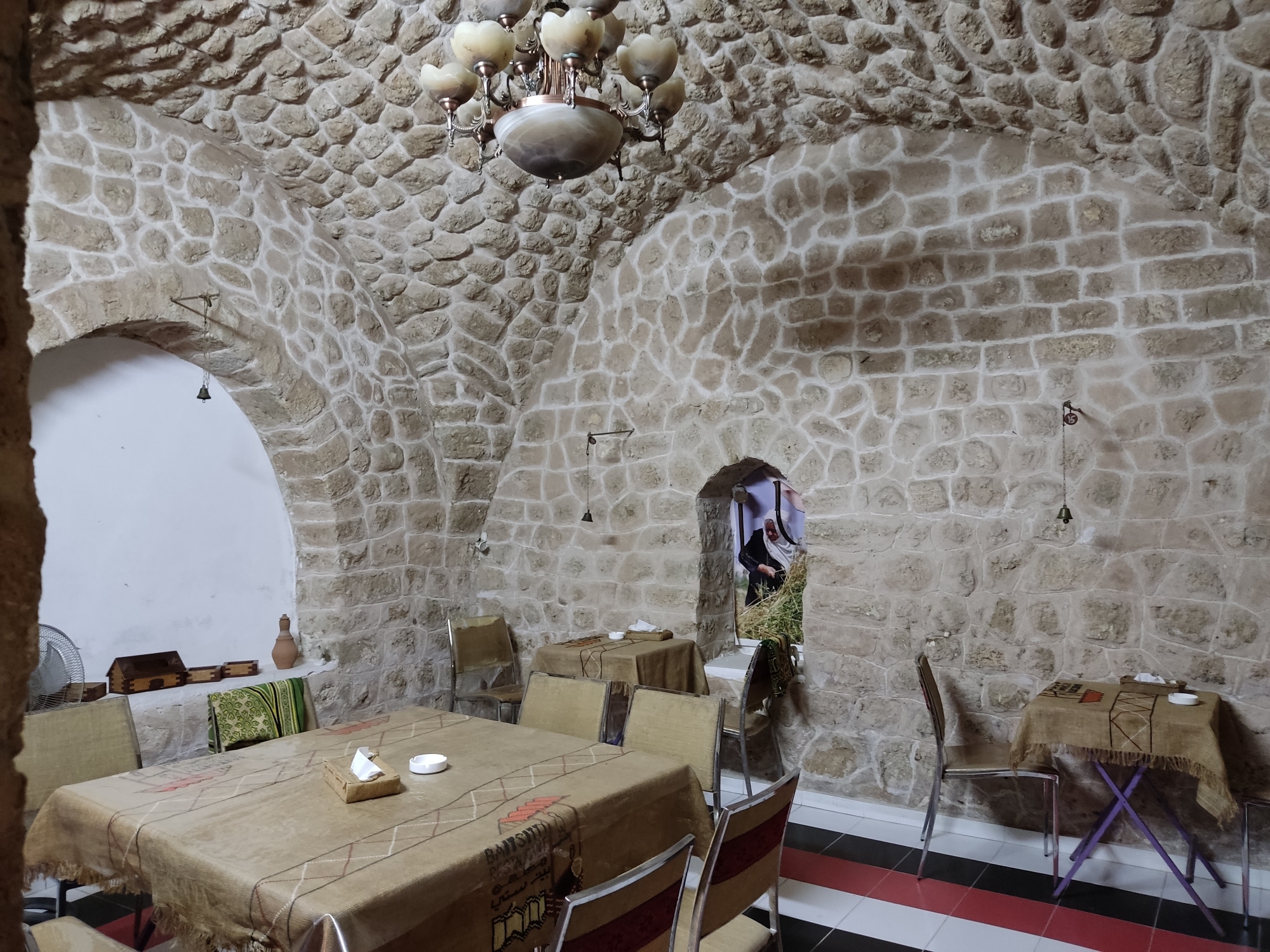
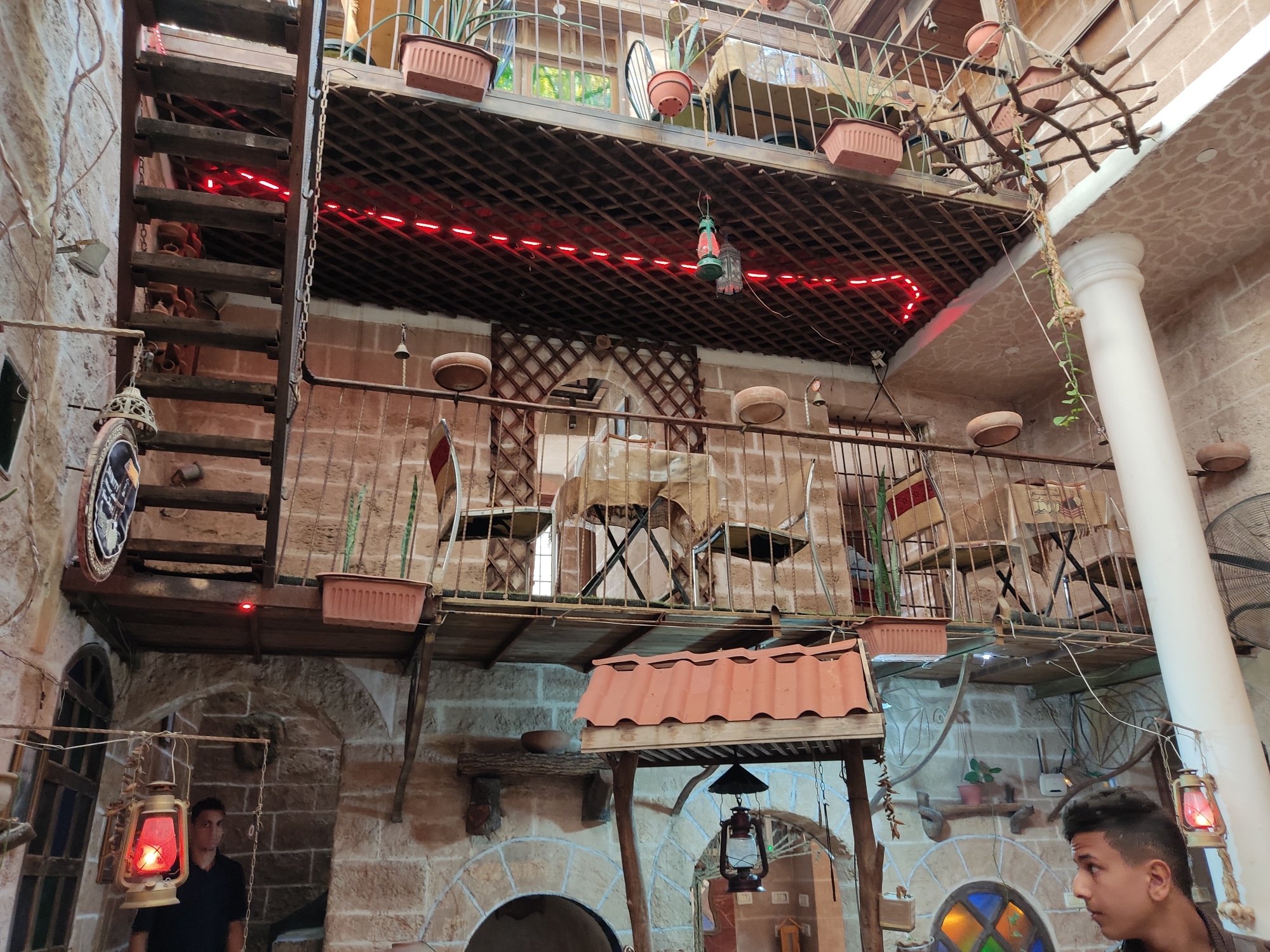
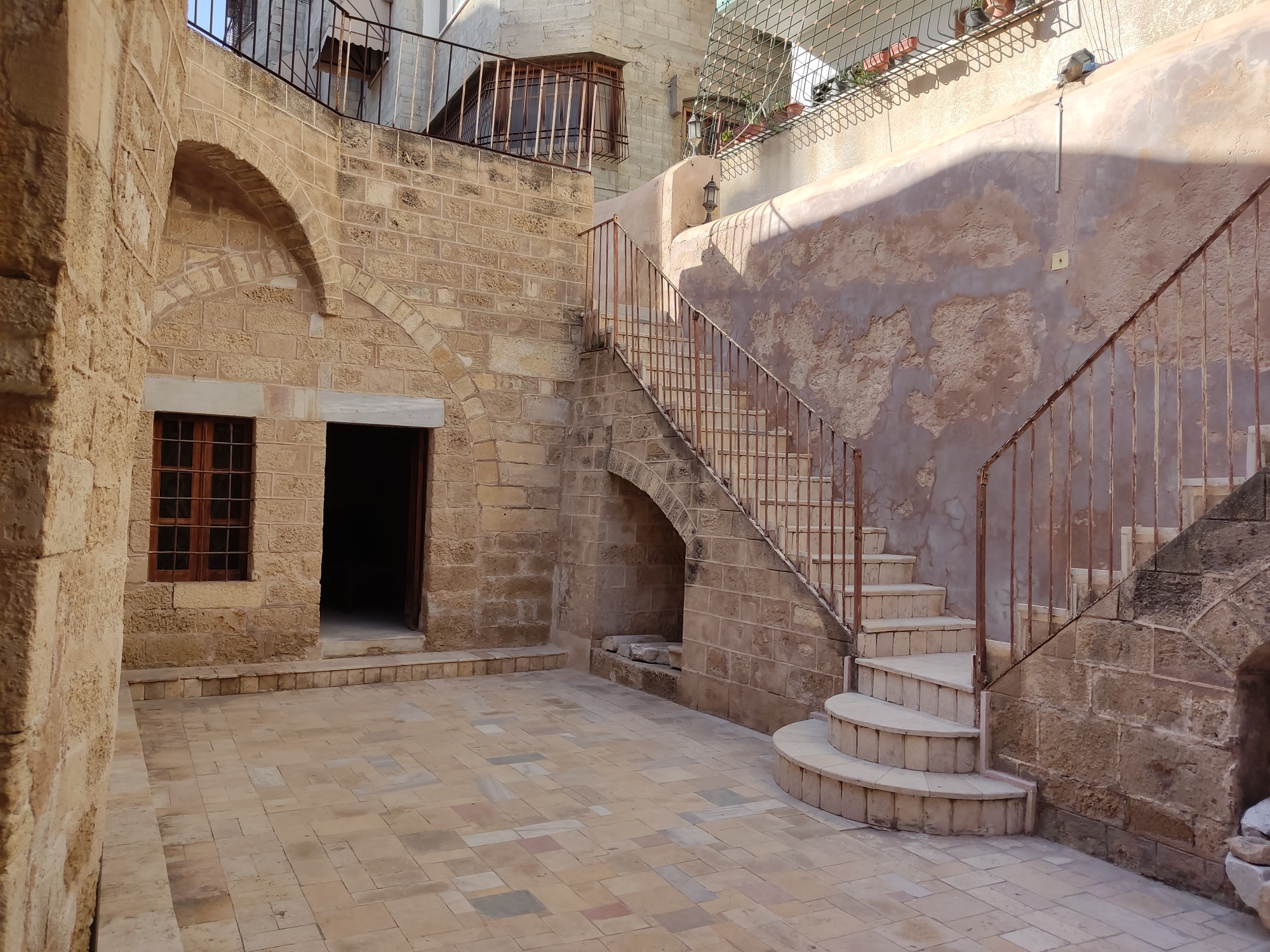

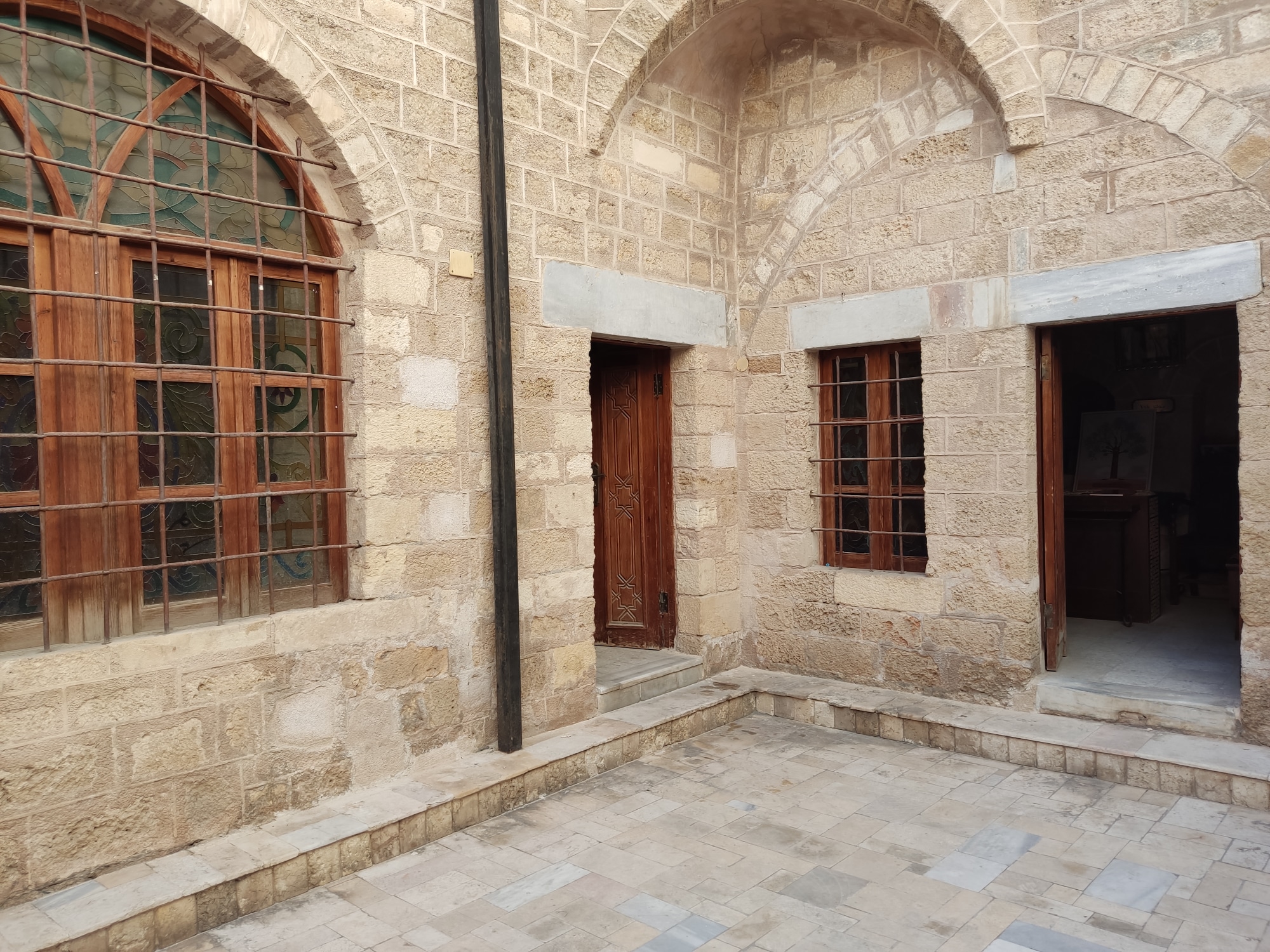
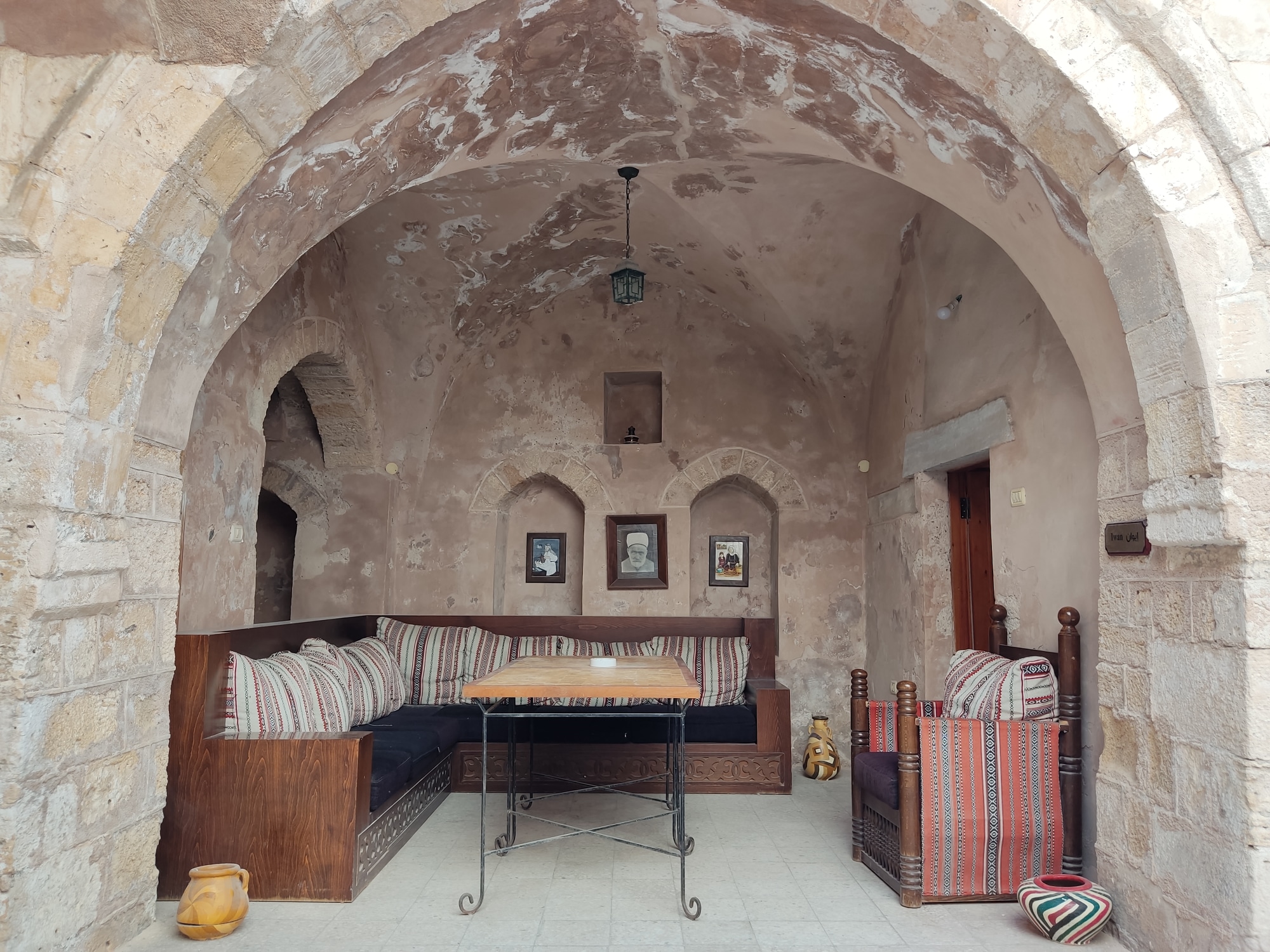
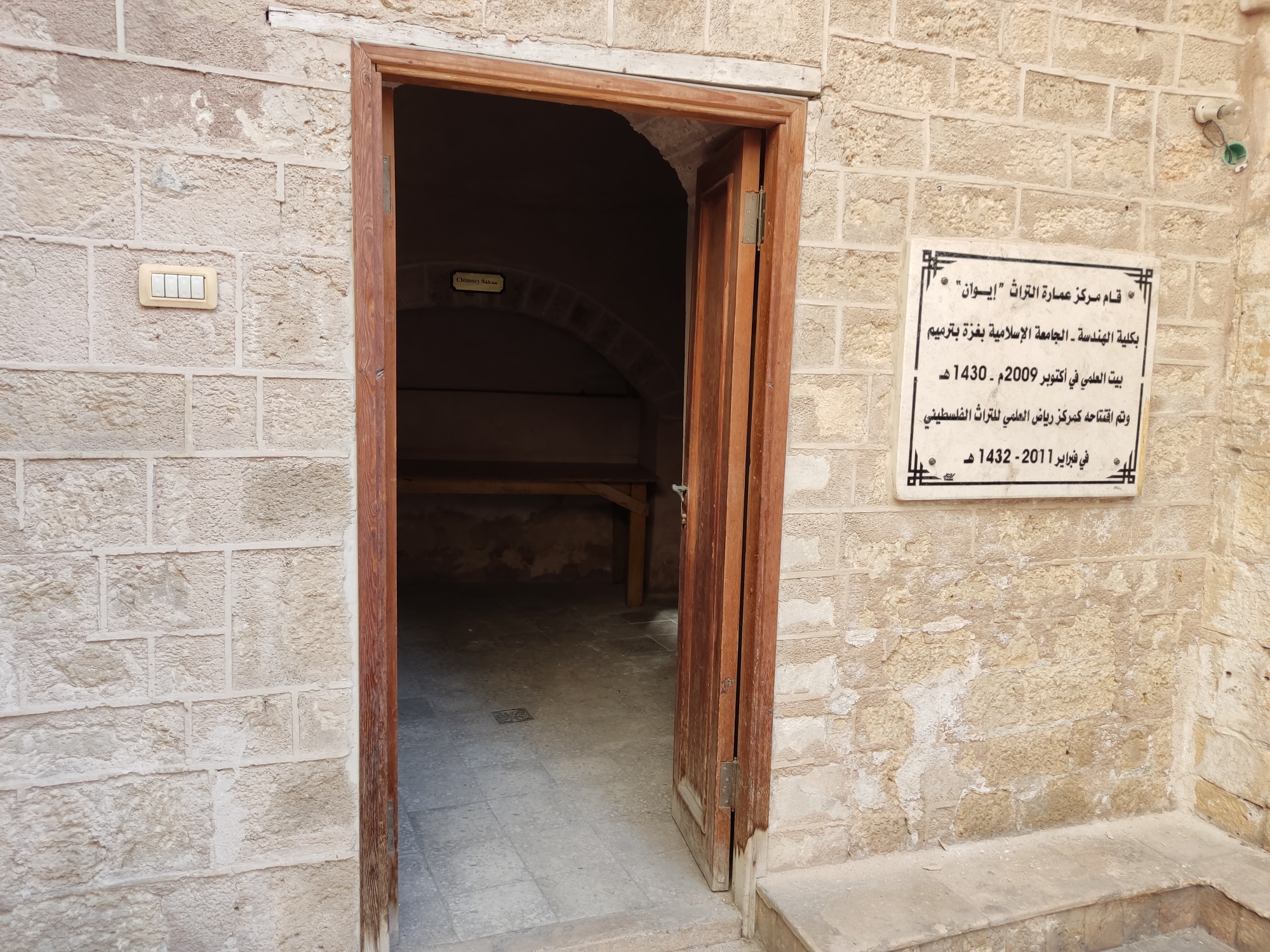
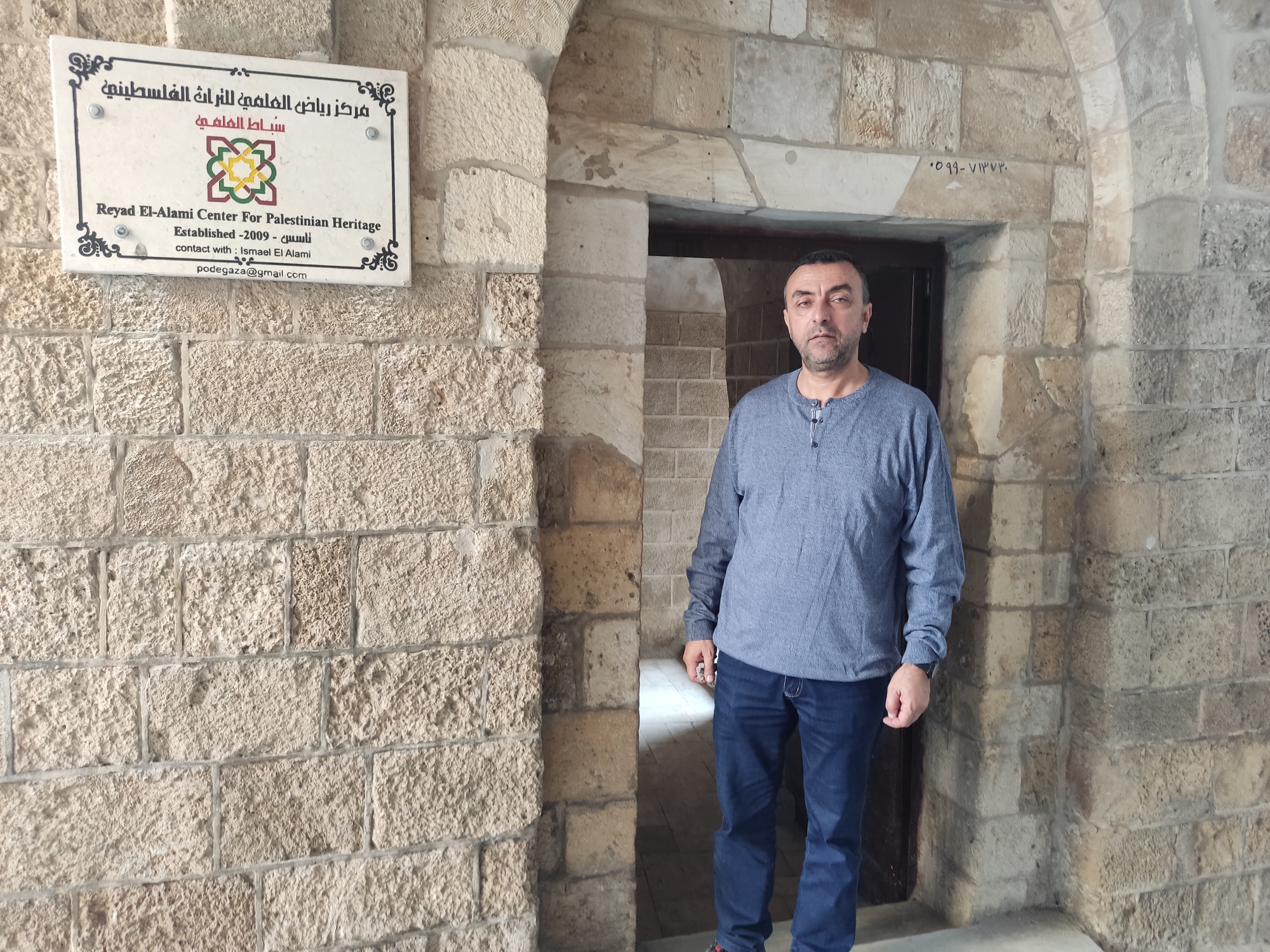
Bait Sitti, a 450-Year-Old Success Story
In contrast to the Al-Alami house, another property, Bait Sitti, was able to preserve its original facilities and maintain the integrity of its significant archaeological history. The building has been around for over 450 years. It was recently converted into a restaurant and is located in the olive neighborhood of Gaza City.
“As the Bait Sitti restaurant is very old, sometimes sand falls off its walls. Our workers diligently clean it and the government takes care of it when we need to restore it.” according to Ahmed Fayez Al-Assi, the son of the owner of Bait Sitti.
”There is a general lack of funding for these ancient houses as there is a lot of competition. Still, we are trying to work closely with the Municipal Office to help preserve the Old City”, says Ahmed Al-Astal, Director of the Iwan Heritage Center
“The preservation and re-living of cherished memories is a unique experience at this place. Bait Sitti is different from other restaurants in terms of seasons, as you’ll find the restaurant remains cool in summer and warm in winter”, says Mr. Al-Assi.

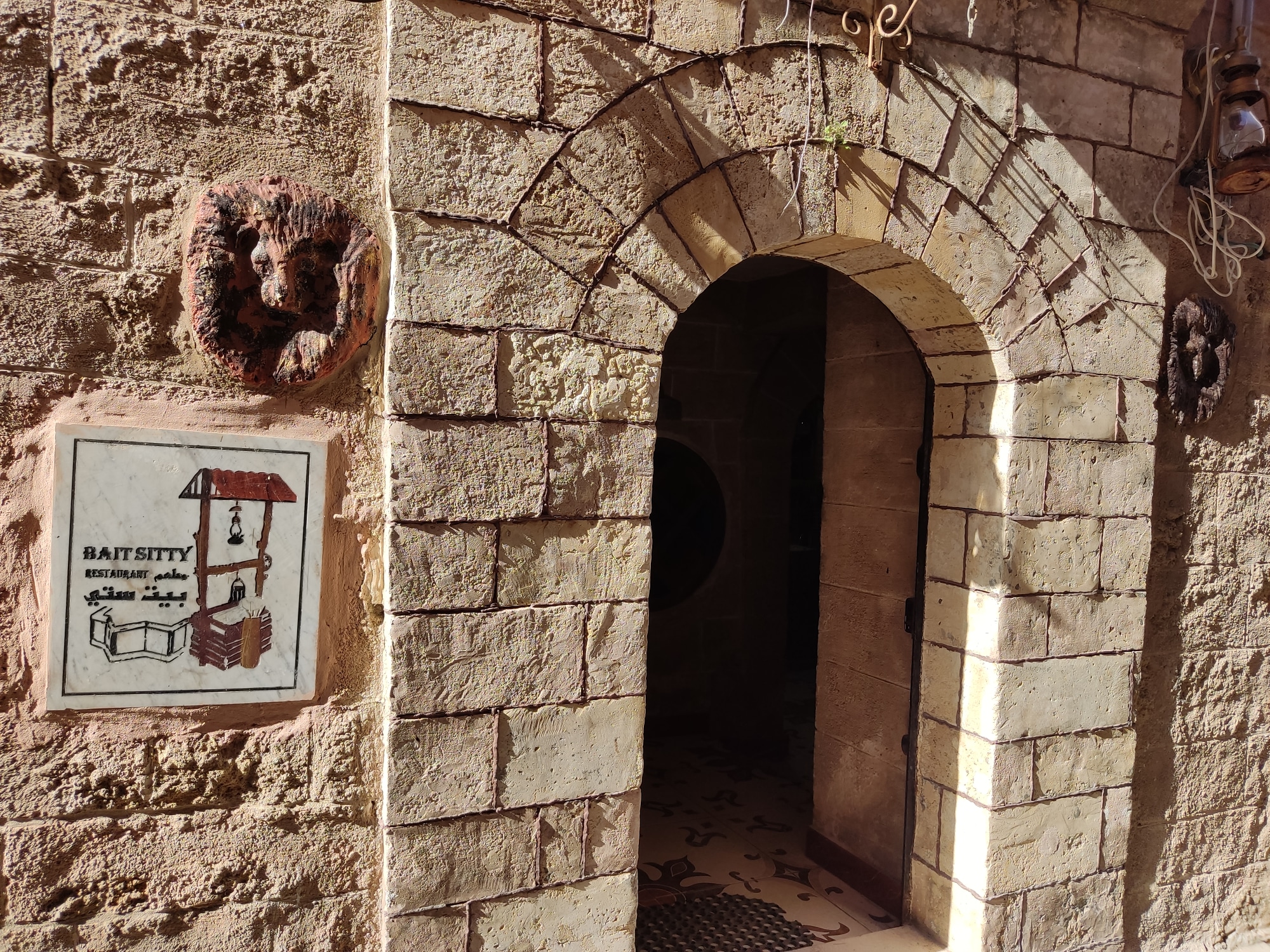
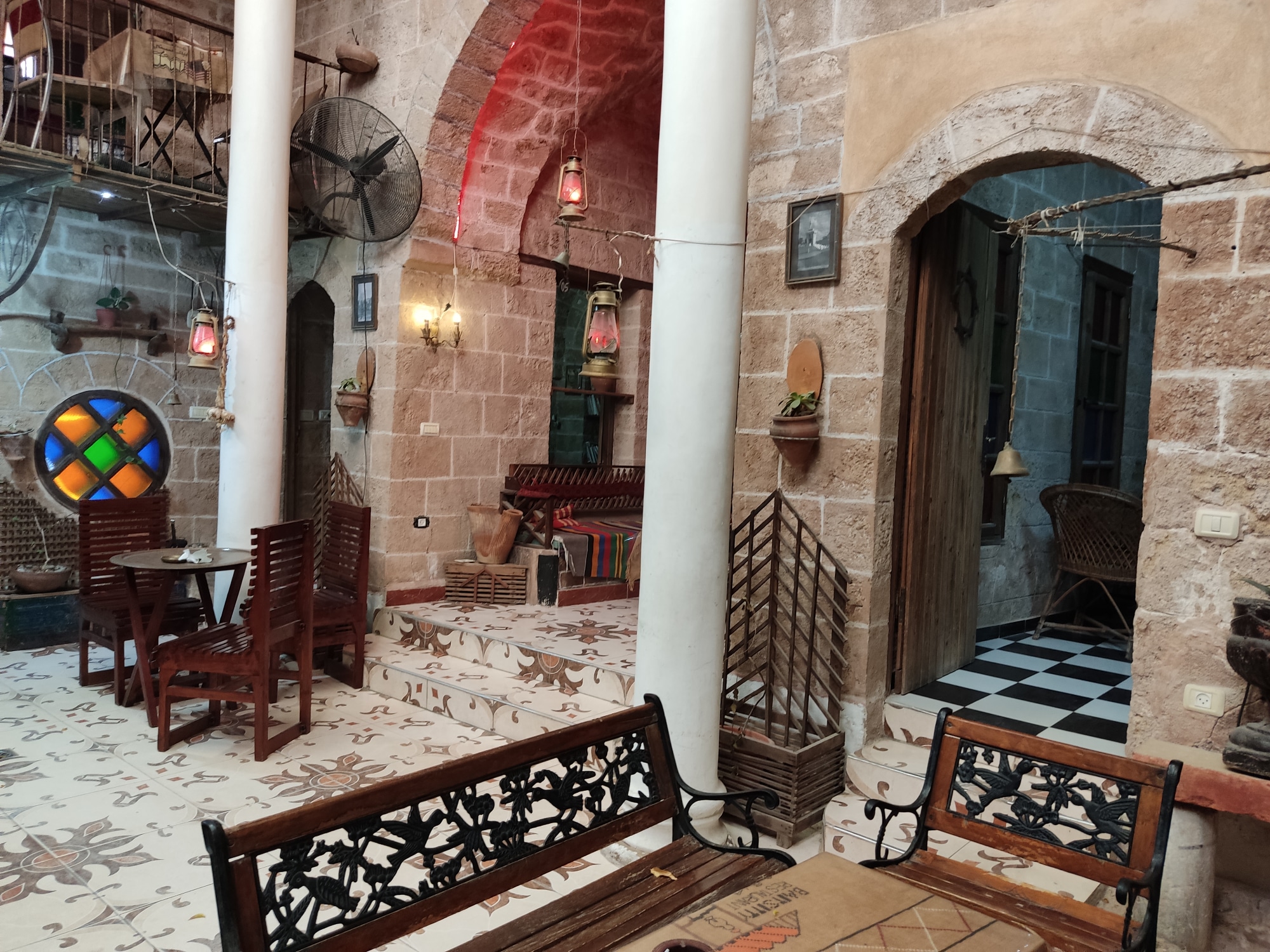
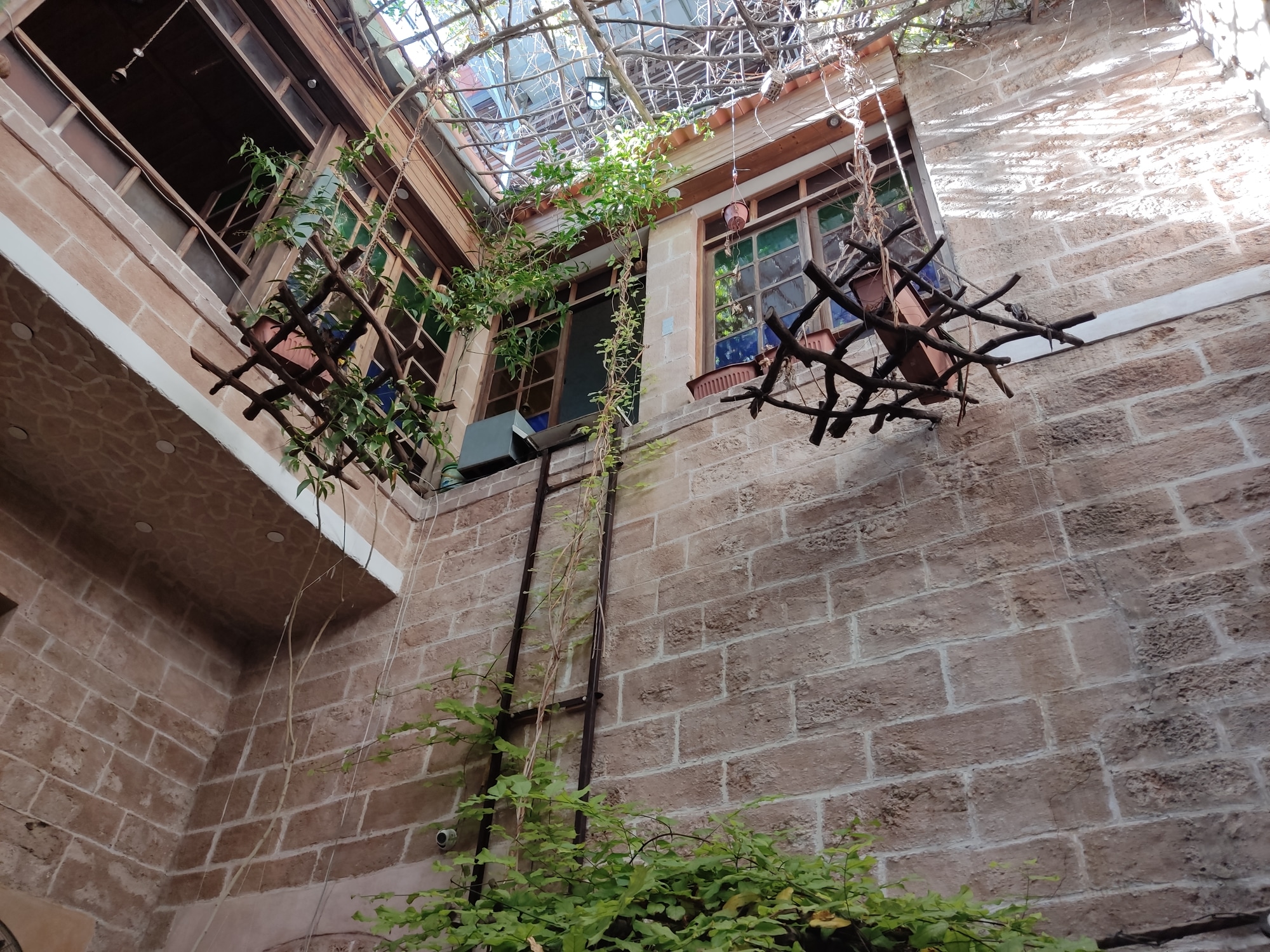
Ongoing Challenges and Opportunities
Citizens of Gaza are prohibited from demolishing their houses under an agreement with the Municipality. “Under The Palestinian Antiquities Law Of 1929, owners of ancient buildings are prohibited from destroying, bulldozing, or even repairing them, without ceding control of them to the Ministry. The agreement also deprives any citizen who demolishes his house of future licensing and building permits, or of obtaining other municipal services such as water and electricity”, says Mr. Abu Raida.
There are many ancient houses in Gaza that have been demolished in search of financial gain or due to a lack of public awareness of their significance. Of the homes that remain, the Municipality and the Iwan Center are trying their best to preserve them.
The Iwan Center is able to support 2 or 3 of these ancient houses each year. However, many others need significant government support to help preserve their ancient legacy. The Iwan Center organizes events and activities to help raise awareness to aid in this important mission.





